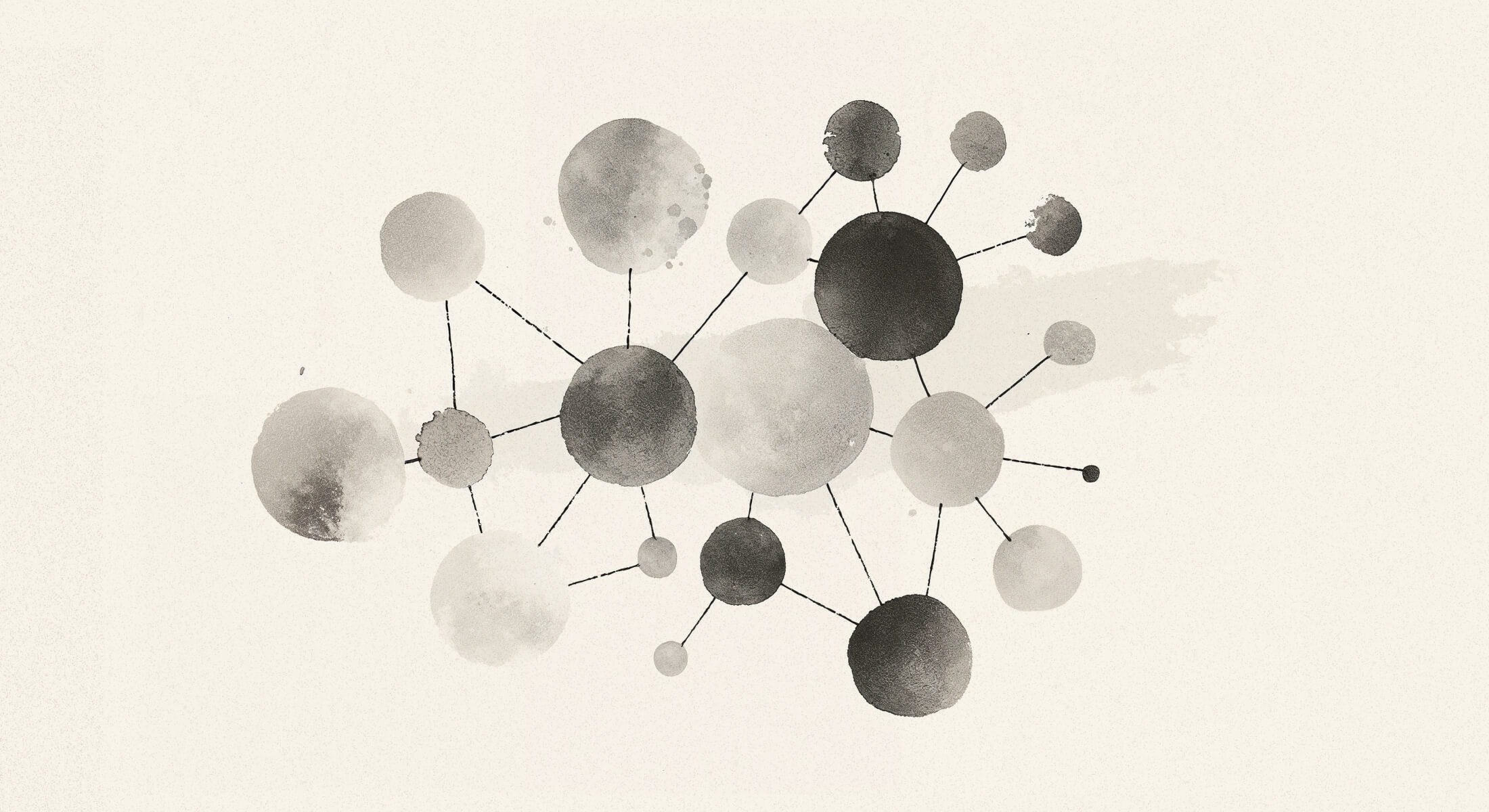The power of personal narrative

I've always been familiar with the concept of narrative.
It makes sense when you consider that for nearly a decade, I've been involved in sales in some way or another, and a big part of doing it well means building the right narrative to guide people toward your desired outcome. So this idea of shaping narrative to my advantage has been bouncing around in my head for many years already.
Being a founder means you're doing "sales" pretty much all the time—whether you're pitching your product to potential clients, convincing talented people to join your team, or setting up partnerships with other companies. It's all sales, even if it doesn't match the stereotype of some pushy guy trying to sell you a minivan to hit his monthly target.
In other words, sales heavily depends on controlling the narrative—something most of us have realized if we've ever tried to convince anyone of anything.
But since last year, through some really good (and long) conversations, my understanding of narrative has expanded significantly, maybe even transformed completely.
The way I see it now, narrative is the story we tell ourselves every day about anything and everything—and it's way more powerful than we usually think.
Here's the thing: we humans love stories and narratives, sometimes to our own detriment. This preference for narrative is so deeply ingrained that it actually affects our judgment of probability. Studies show we often believe future events are more likely when they come with a specific story attached, even when that actually makes them less likely. Like how people rate "this investment will succeed because the founder previously worked at Apple" as more probable than just "this investment will succeed"—despite the first one being a subset of the second.
These examples reveal something fundamental about human psychology: narratives don't just entertain us—they fundamentally shape how we perceive reality.
You might be thinking this conclusion seems pretty obvious—something you've already figured out yourself. But there is more:
The biggest revelation I've had is that while we're conscious of how narratives influence others, we rarely notice the most powerful narrative of all—the one we're constantly telling ourselves about who we are and what we're capable of.
This is our personal narrative—how we see ourselves fitting into the world.
Think about it: when we do something that might not look great to others, we immediately package it in a narrative that makes us look better: "I did X because of Y, as otherwise Z would have happened, so X was clearly the best choice."
But we rarely take the time to consciously think about the narrative we're telling ourselves each day about who we are and our place in the world.
Most of the time, that narrative forms itself from a mix of (1) what others tell us, (2) what our culture typically pushes, and (3) how we react to those influences.
We spend hours perfecting our pitch to investors and crafting the right words to explain our career choices to family at Christmas dinner, but we rarely put the same effort into the story we tell ourselves.
This distinction matters a lot. We actively shape narratives for external stuff but passively inherit the most important narrative—the one about ourselves—from whatever's around us. This blind spot is particularly dangerous because it means we're allowing the most influential force in our lives to be shaped by default rather than by design.
The consequences of passively inheriting your personal narrative extend into every aspect of your life. This narrative drives everything—your actions, reactions, your self-esteem, and your sense of purpose. If your internal story is limiting or negative, you're probably holding yourself back without even realizing it.
Take a look at these examples:
Limiting narrative: "This person I just met is amazing, but she is super successful and established with a great career and social circle. I'm probably not enough for them to consider dating seriously, so maybe I should just keep looking for someone more at my current level"
Empowering alternative: "This person I just met is amazing. I'll ask thoughtful questions about their journey, apply those insights to accelerate my own personal and professional growth, and show my exceptional ability to evolve. I'll take that advanced course, read the key books in their field, and demonstrate how quickly I can develop. Love how this relationship can empower me to grow!"
- Limiting narrative: "My parents always warned me about business failure based on what happened to my uncle's restaurant, so I've played it safe and avoided started my own business completely. Every time I consider quitting, I hear my dad's voice saying 'Remember what happened to Uncle Mike?' and I end up staying at this job for another year"
- Empowering alternative: "My parents' warnings about Uncle Mike's restaurant failure taught me valuable lessons about business risks, but I'm using those lessons as a roadmap of pitfalls to avoid rather than reasons to never try. I've spent six months researching the market, building relationships with suppliers, and creating a business model that I'm pretty confident can make it!"
These contrasting narratives demonstrate how the same situation can lead to drastically different outcomes based solely on our internal framing.
Think about how many times you've skipped opportunities because your internal story labeled them as "not for you" or "too risky". Or how often you've justified not pursuing something because of some story you've been telling yourself about "people like me".
I'm not saying you should always optimize for more or ignore feelings of sadness or challenge. Rather, remember that whatever narrative you're telling yourself is always subjective, and if you don't like it, you can always change it.
Your values and goals define what you want, and it's important to align your narrative with those desires instead of letting your story be written by others or random external events.
Trying to bring all of this to life, I will share a quick story around something that happened to me and how it ended up teaching me this lesson.
—
A while back, a company that had been a long-time business partner suddenly seemed to stop valuing our relationship for no clear reason. They began making decisions that negatively impacted our business.
At first, I was confused and sad because there was no obvious explanation. After several attempts to talk it through, I learned that most of the partner company's staff had changed, and the new management wanted a different direction.
We reached out to our previous contacts, who basically said, "Sorry, we're not in charge anymore—you'll have to deal with the new people." It was a real low point.
For about 2-3 days after that, I felt pretty down and unmotivated. We'd partnered with them for years and often went above and beyond to help them out. It felt crazy that everything could change overnight when we'd both been benefiting so much.
Later that week, I took some time to think about what happened and what I could learn from it. I made a deliberate decision to transform my perspective completely.
I shifted my thinking from:
"We are in this negative situation because one of our long-time partners suddenly changed directions and affected our business overnight, how bad of them!"
to:
"This is the event that fortunately taught us that it's a bad business decision to rely so heavily on third-party partners, and thanks to it, we are restructuring our business to avoid that in the future and come out stronger"
Instead of playing the victim, I reframed the situation as the lesson we needed to improve. With this new energy, I created a plan, shared it with the team, and our situation got way better pretty quickly.
Since then, whenever I catch myself building a negative story in my head about a situation, I ask: "Does this story serve me? Does it move me toward where I want to be?" A narrative serves you when it increases your agency, expands your options, and aligns with your core values—not when it simply feels good in the moment. If that is not the case, I change it.
—
You might wonder if this approach means refusing to accept reality "as it is" and only seeing what's convenient. It's a fair concern, but I think most of us can tell where to draw the line.
Plus, reality "as it is" is rarely objective anyway.
Whenever we interpret a situation, we're filtering it through our culture, other people's opinions, the movies we watch, the books we read, the stories we have heard, etc—all subjective influences that rarely approach true objectivity. Two people can experience the exact same event yet walk away with completely different interpretations of what happened. Since complete objectivity is practically impossible even in simple situations, it makes more sense to focus on creating narratives that empower rather than limit us.
So if we're going to create a subjective narrative about ourselves in the world—and we will, whether we intend to or not—we might as well make sure that narrative works for us, not against us.
Next time you catch yourself creating a story about who you are and your place in the world, remember: you're the author, and you can write a story that empowers you rather than limits you.








